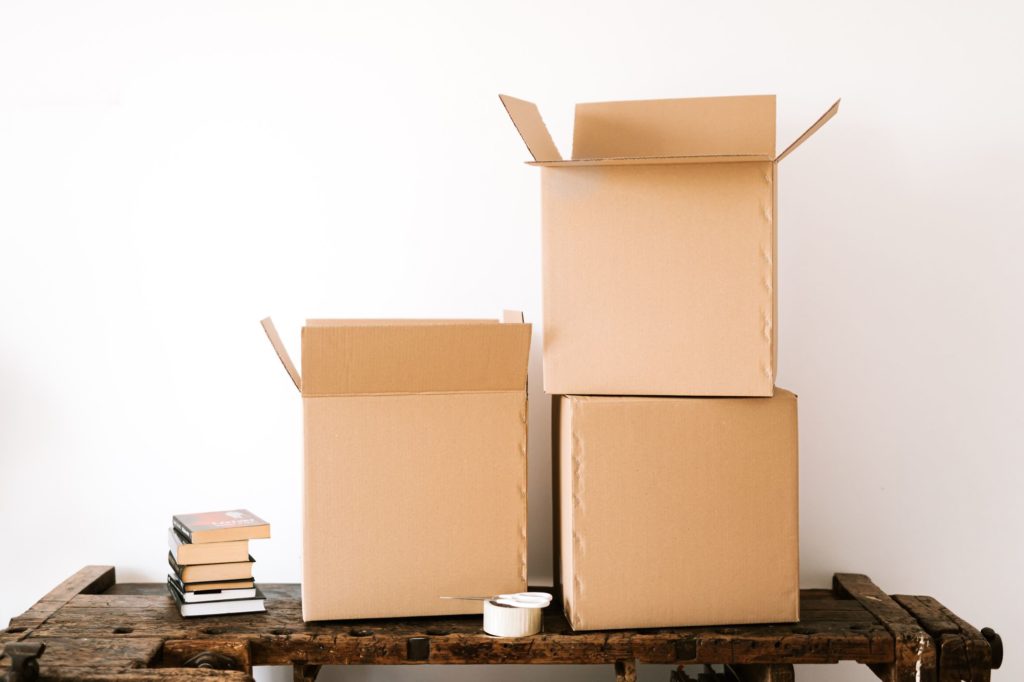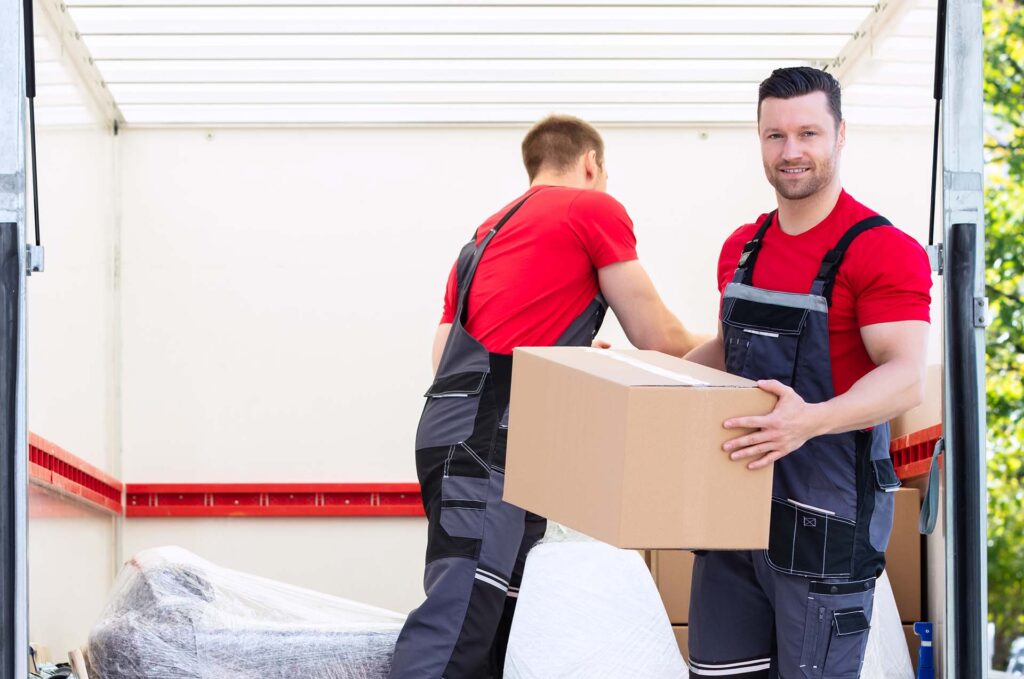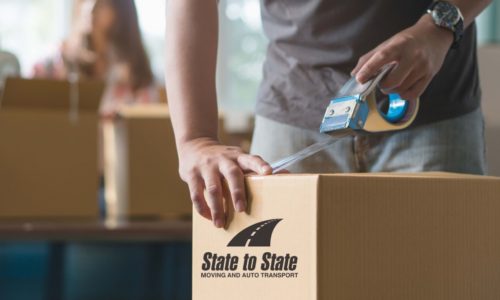Mastering a small long-distance move requires careful planning and execution. When moving small loads across the country, it’s crucial to prioritize efficiency and organization. Learn essential tips and tricks to ensure that your transition is seamless, regardless of the distance. Whether you’re relocating for work, family, or a change of scenery, knowing the nuances of a small long-distance move can make all the difference in your experience.
The Basics of a Small Long-Distance Move
This type of move typically involves relocating a limited amount of personal belongings over a considerable distance, often crossing state lines. This type requires precise relocation planning and execution to relocate efficiently and cost-effectively. One of the defining characteristics of such a relocation is the challenge of balancing the scale of belongings with the logistics of long-distance travel.
Common hurdles include managing packing, ensuring the safety of items during transit, and navigating the logistics of travel and timing. To overcome these challenges, many opt to hire long-distance movers who specialize in transporting smaller loads. These professionals offer tailored solutions that address the unique needs of a small-scale relocation.
Why Is It Important to Create a Detailed Plan
Creating a detailed plan is crucial for any successful small long-distance move.
It’s the foundation for making smart moves and deciding on budget-friendly moving solutions.
In this way, every aspect of the relocation can be well-orchestrated.
When you plan a relocation, a realistic moving timeline planning is of utmost importance as well.
Start by determining the relocation date and work backward to establish deadlines for each task. This includes designating time for sorting and decluttering, packing efficiently, hiring movers, and handling utilities and address changes. A well-thought-out timeline helps in avoiding last-minute rushes and oversights, making the process smoother and more cost-effective.
Strategies for Carrying Out the Plan Properly
Executing a relocation plan properly is essential for a stress-free relocation. There is no need to worry when you implement perfect strategies to make sure everything goes according to the plan. Here are some strategies to ensure that the plan is carried out effectively:
- Start early – Begin the relocation process well in advance. This gives you ample time to pack, hire movers, and handle logistics without pressure.
- Declutter first, pack next – Reduce the number of belongings by decluttering. Donate, sell, or get rid of items you no longer need, making packing and moving state to state more manageable.
- Hire reputable movers – Choose experienced and reliable movers, especially those specializing in small long-distance moves. They can provide valuable guidance and assistance.
- Pack smart – Use quality packing materials and label boxes. This not only protects your belongings but also makes unpacking in the new home easier.
- Keep important documents easily accessible – Have all important documents, like contracts, IDs, and inventories, easily accessible.
- Set up utilities in advance – Arrange for utilities at the new home before you arrive to ensure a comfortable start in the new place.
- Plan for relocation day – Have a clear plan for the relocation day, including travel arrangements and a survival kit with essentials for the first few days.

Select the Perfect Long-Distance Moving Company
The range of relocation company services varies widely, so it’s important to choose a relocation company that meets your specific needs. Start by assessing the volume and nature of the items you’re relocating. Look for companies that specialize in small long-distance moves and can offer tailored services.
It’s essential to check if a company is legitimate. This includes verifying their licensing, insurance, and track record. Read customer reviews and ask for referrals to gauge their reliability and quality of service. Also, learn about their pricing structure and whether they provide detailed estimates. Ensure that the company is transparent about its long-moving services fees and packing services costs to avoid unexpected expenses.
Benefits of Choosing an Insured and Licensed Mover
Choosing an insured and licensed mover comes with numerous professional movers’ benefits that make relocation easier and more secure. Firstly, insurance coverage provides peace of mind, as it ensures that your belongings are protected against damage or loss during transit. In case of any unforeseen incidents, you have the assurance of compensation, which is crucial for long-distance moves.
A licensed mover adheres to industry standards and regulations, ensuring a high level of professionalism and ethical conduct. This not only guarantees a certain quality of service but also offers recourse in the event of disputes or issues. Licensed movers are typically more experienced and better equipped to handle different types of moves.

Prepare Questions to Ask Potential Moving Companies
Asking the right questions to potential moving companies is essential for a successful long-distance relocation. It ensures that you are informed about all aspects of their service, helping you make the best decision. Here are some important questions to ask.
Can You Provide References or Testimonials From Previous Customers?
This question is important to assess the company’s reliability and quality of service based on past customer experiences. Reliable companies have good reviews on numerous online review websites.
What Is Your Policy for Handling Disputes, Damage, or Loss?
Ask state-to-state movers how the company deals with potential issues and ensures protection for all belongings. It’s a red flag if the mover doesn’t reveal anything about different insurance options.
What Are the Terms and Conditions of the Contract?
Ask this to know your rights and responsibilities, as well as those of the relocation company. Don’t sign anything without thoroughly reading every single word.
How to Pack Efficiently for Space and Safety
For a small cross-country move, packing efficiently is crucial for maximizing space and ensuring the safety of your belongings. The best way to pack involves creating a detailed relocation inventory first. This inventory helps identify essential items and avoid the transport of unnecessary goods.
Use sturdy, appropriately sized boxes and high-quality packing materials to protect all items. Put heavier items in smaller boxes so they are easier to carry, while lighter items can be packed in larger boxes. Utilize space-saving packing techniques like rolling clothes instead of folding and using socks or scarves to fill gaps. Disassemble larger items, if possible, to save space.
What Are the Best Techniques for Labeling and Inventory Management
When moving small loads across the country, effective labeling and inventory management are key to a smooth process. To prepare for movers, start by creating a comprehensive list of all items being transported. This inventory acts as a checklist during both loading and unloading, ensuring nothing is missed.
For relocation labels, use a color-coding system where each room has a designated color. This makes it easier for movers to know where each box goes in the new location. Mark boxes containing fragile items. Include a brief list of contents on each box’s label for easy identification without needing to open it. Keep a master inventory list with you for quick reference.

How to Deal with Logistics
Effective moving logistics management is important, especially for small long-distance moves. Understanding the transportation process involves familiarizing yourself with the route, transit times, and the methods used by the chosen company.
Keeping track of belongings is key, so inquire about the company’s tracking methods. This allows you to stay informed about the location and status of all belongings throughout the journey. Handling paperwork and documentation with diligence is essential. This includes:
- Contracts,
- Insurance documents,
- Inventory lists,
- Receipts.
Ensure all agreements with the company are clearly understood and kept handy. For documentation, establish a well-organized filing system, either digitally or physically, so that all essential papers are accessible and secure.

Overcoming Common Long-Distance Small Move Challenges
Moving small loads long-distance presents unique challenges, particularly for those moving out for the first time. One common issue is underestimating the complexity of the process, leading to relocation mistakes like poor planning or insufficient packing.
To overcome these, start by thoroughly researching and planning every aspect of the relocation. Another challenge is managing logistics within a limited budget. Compare different moving interstate services and consider cost-effective options like shared moving services or renting a small truck.
Building a support network, staying connected with loved ones, and actively seeking out new communities in the destination can help ease this transition. Staying organized, informed, and flexible can significantly reduce the potential stress and complications associated with small long-distance moves.
How to Deal With Relocation Day Stress
To cope with relocation stress on a relocation day, having a well-prepared relocation day checklist is essential. This checklist should include final packing details, essential documents to carry out, and tasks to complete before leaving, like meter readings and final property checks. Efficient moving strategies include starting the day early and ensuring everything is packed and labeled correctly.
Remember to keep essential items like medications, important documents, and a change of clothes easily accessible. Taking breaks, staying hydrated, and maintaining a calm mindset can also help manage stress levels. Finally, if possible, invite friends or family for moral support and assistance.
How to Stay Positive Throughout This Process
Focus on the exciting aspects of the change, like the opportunity for a fresh start or the adventure of exploring a new place. Keep in mind the reasons for the move, such as being closer to a loved one, which can be a strong motivational factor.
During home setup after moving, take the time to personalize the space, making it feel cozy and welcoming. This helps in creating a sense of belonging in the new environment. Remember, it’s normal to have ups and downs during small moves long distance, but maintaining an optimistic outlook and embracing the change can make the experience enriching and fulfilling.
Moving Small Loads Long Distance Is Simple With the Right Movers by Your Side
Key tips to ensure a smooth transition include thorough planning and organization, utilizing a detailed moving checklist, and staying informed about each step of the transportation process. Choosing a reliable moving company that specializes in small relocations can significantly reduce stress. By investing in professional long-distance moving services, you ensure that your belongings are handled with care and efficiency.
State2State Movers offers the expertise and resources needed to make your move as seamless as possible. With our dedicated team, moving out for the first time or managing a small long-distance relocation becomes more of an exciting new journey. Contact State2State Movers today to ensure your move is in the best hands.
How Far in Advance Should I Start Planning My Relocation?
Beginning the planning process for a relocation at least two to three months in advance is advisable. This timeframe allows for thorough research, comparison of service providers, and completion of necessary administrative tasks. Early planning also provides the opportunity to address potential logistical challenges and secure preferred service dates.
How Do I Choose the Best Relocation Company for My Needs?
Research is key in selecting an appropriate relocation service. Looking into various companies’ customer reviews, services offered, and pricing can provide insight into their suitability. Requesting detailed quotes and verifying credentials, such as licensing and insurance, are also important steps in this process.
What Are Some Cost-Saving Tips for a Long-Distance Relocation?
To save costs on a long-distance transition, declutter to reduce the volume of items being transported. Comparing quotes from multiple relocation companies can help find the most economical option. Planning the transition during off-peak seasons can also lead to lower costs.
What Should I Do Immediately Upon Arriving at My New Place?
Upon arrival, it is essential to conduct a thorough inspection of the new place, ensuring all utilities are functioning and the space is secure. Unloading and sorting essential items for immediate use helps in settling in more quickly.
How Can I Efficiently Unpack and Organize My New Home?
Starting with essential rooms like the bedroom and kitchen can make the process more manageable. Utilizing a pre-planned layout for furniture and belongings can aid in efficient organization. Gradually unpacking room by room prevents the process from becoming overwhelming.
How Can I Manage the Stress Associated With Relocating?
Maintaining a well-structured plan and checklist can alleviate much of the stress associated with a transition. Taking breaks and ensuring adequate rest during the process is important. Seeking support from friends or professionals can also be beneficial in managing emotional and physical stress.

















